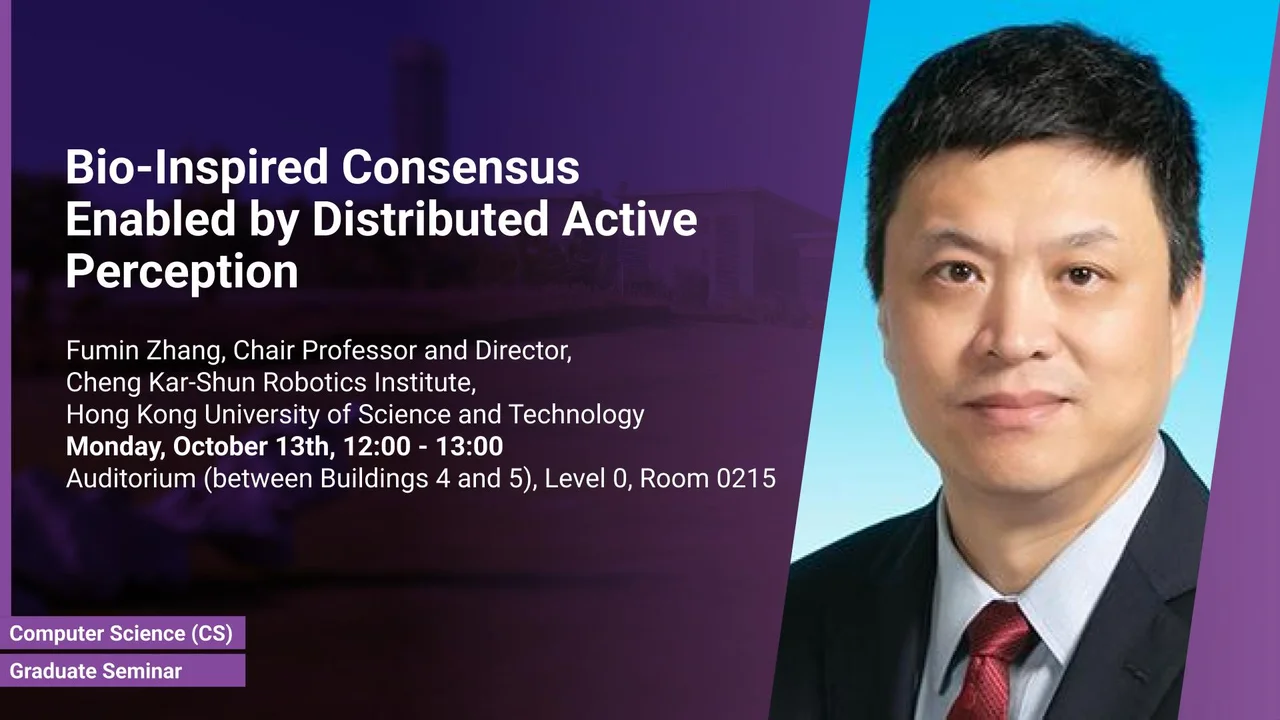
Bio-Inspired Consensus Enabledby Distributed Active Perception
Auditorium (between Buildings 4 and 5), Level 0, Room 0215
Consensus is a fundamental requirement for coordination and cooperation among a swarm of intelligent agents. In environments with difficulty for localization and communication, achieving swarm level consensus is a challenging task. We propose a layered approach to achieve signal propagation over large swarms through active perception. Biological evidence from fish swarms has shown that distributed active perception is used by animals to allow fast response to stimulations when only a few members are excited.
Overview
Consensus enabled by active perception has advantages over averaging consensus, such as reduced communication, faster signal propagation, and tolerance to localization uncertainty. After transferring this knowledge to the design of robotic swarms, we found that multiple perception layers can be overlaid on top of the feedback control layer to achieve complex swarm behaviors. The findings lead to effective distributed optimization algorithms that are quite different from the known consensus-based algorithms. One key feature is the capability to handle vanishing and exploding gradients that often arise in machine learning. A generalization is made to design distributed algorithms that can solve integer programming problems such as multi-robot task allocation. Our algorithms are rigorously analyzed and verified by experimental effort on mobile and flying robot platforms. The promising results demonstrate that bio-inspired autonomy might be preferred in an environment that features severe limitations in localization and communication.
Presenters
Fumin Zhang, Chair Professor and Director, Cheng Kar-Shun Robotics Institute, Hong Kong University of Science and Technology
Brief Biography
Dr. Fumin Zhang is Chair Professor and Director of the Cheng Kar-Shun Robotics Institute at the Hong Kong University of Science and Technology. He is also Dean’s Professor adjunct in the School of Electrical and Computer Engineering at the Georgia Institute of Technology. He received a PhD degree in 2004 from the University of Maryland (College Park) in Electrical Engineering and held a postdoctoral position in Princeton University from 2004 to 2007. His research interests include mobile sensor networks, maritime robotics, control systems, and theoretical foundations for cyber-physical systems. He received the NSF CAREER Award in September 2009 and the ONR Young Investigator Program Award in April 2010. He is currently serving as the co-chair for the IEEE RAS Technical Committee on Marine Robotics, associate editors for IEEE Transactions on Automatic Control, and IEEE Transactions on Control of Networked Systems, IEEE Journal of Oceanic Engineering, and International Journal of Robotics Research.